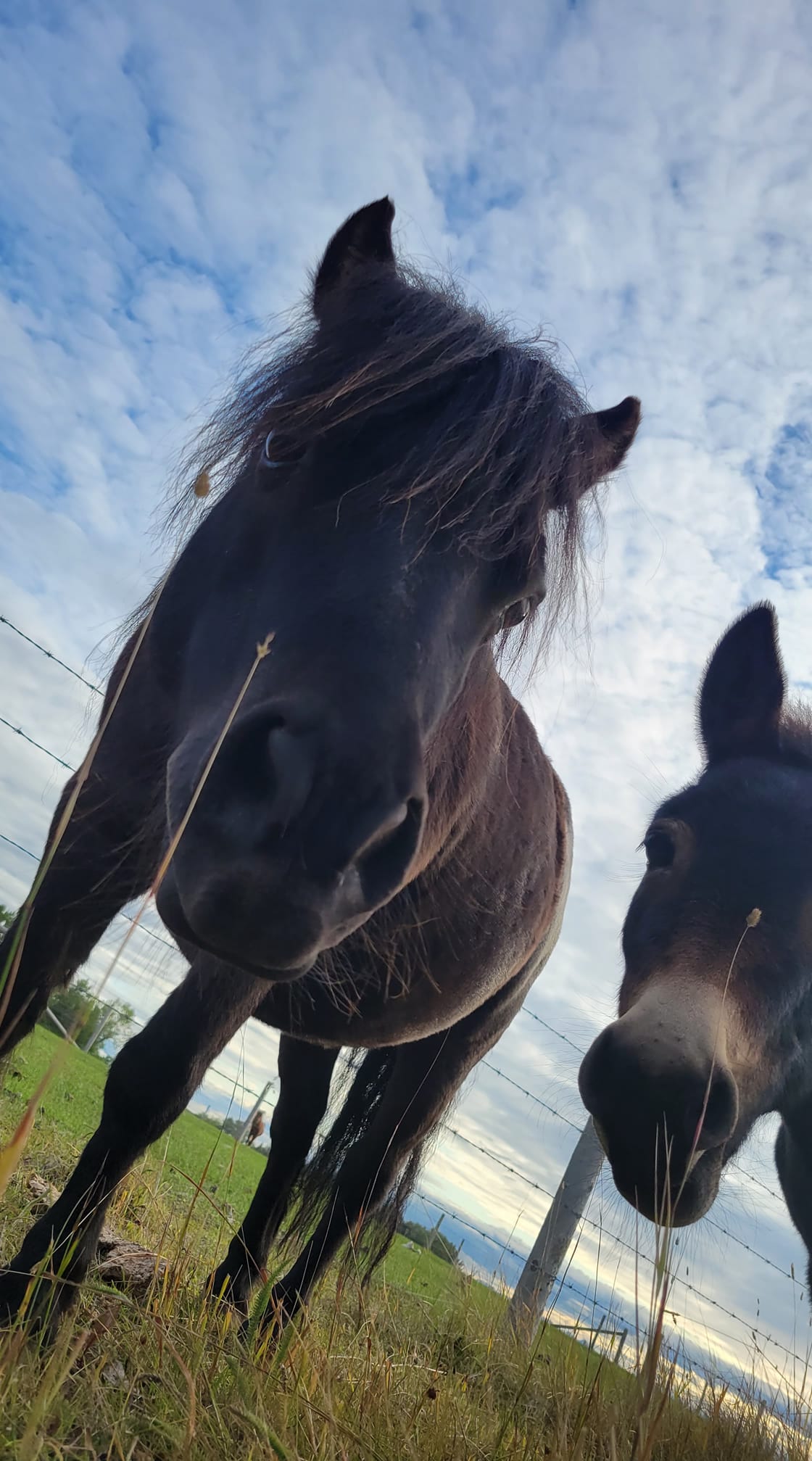(And I Know Because I’ve Made Them All)
#1 – Asking For Too Much Too Soon
We know what our ultimate goal is. We understand clearly where we’re going. But our horse doesn’t. When we skip steps, our horse is going to be confused or frightened or frustrated. Whether we’re teaching them a simple skill like backing up on a halter, or a complicated one like driving, we can make it so much easier (and safer) for both horse and human if we make sure to teach it in as small a steps as possible, and be very clear with our horse when we get the response we’re looking for.
As an example, often what happens when we ask our horse to back is we apply pressure to the halter, the horse takes a step back, we think, “Yay, it’s working” and keep applying pressure, but now the horse thinks “I backed up, but she kept pushing on me so I guess that was wrong” and then they go sideways, or quit, or push back, or rear, or crash into you. And then someone says they’re the problem because they don’t have enough “respect” when really they’re just hella confused. And then imagine that compounded many times over when they are introduced to harness, blinders, bit, overcheck, cart and driver all in one go – what a poor choice for the horse, and yet one we see repeated over and over again.
#2 – Using Too Much Pressure
Horses are super sensitive to the world around them. They evolved as a prey animal, they had to be hyper aware to survive. They communicate with each other through tiny changes in body position and breath.
We don’t need to use pressure as our default training approach, and we especially don’t need to use devices or escalating pressure. Anything designed to cause the horse discomfort (rope halters, whips and sticks, chains etc) is unnecessary. And if you apply pressure and don’t get the response you were looking for, that means they didn’t understand, and adding more pressure might get a reaction, but not understanding.
Training that is heavily pressure based will either be unsuccessful or will end up with a horse who does the skill, but like a robot, with no enjoyment or engagement.
Adding more pressure is just more likely to get the horse to brace against it. Work smarter, not harder.
#3 – Getting Frustrated
A frustrated trainer is a bad trainer. I have to be on my guard all the time for this, and I’m not always successful in heading it off, but I do my best.
If it’s not going well, stop! I find it helps if I say, out loud, “Well that didn’t work did it, let’s try something else!” or simply “how interesting!” and then let the horse chill out or snack while I think about a new approach. Because doing the same thing over again isn’t going to work.
“Never let the horse win” is an outdated concept that implies we are in conflict with our horse, when we are supposed to be on the same team. If we get into a fight with them, no one wins.
Try something else, go back to an earlier lesson, end on a good note, or simply walk away, but avoid frustration (both human and horse!) and conflict at all costs.
Learning about horses is a lifelong pursuit, but no matter what methods or skills you’re working on, if you’re breaking things down into baby steps, minimizing your use of pressure, and avoiding frustration, then you’re on the right track.
Want more tips to improve your communication with your Miniature Horse? Get the Understanding Your Miniature Horse eBook by registering below!

Beautiful blog… well written and spot on…
Thank you for the reminders… as we all need them from time to time!
Thank you!
Excellent reminders. It’s so easy to get off track, but I will keep this close at hand. Thanks
Definitely great advice. Can’t hear this stuff too often!
Thank you.
Good points
However I think saying a bad trainer is a frustrated trainer is not right
We are human allowed to get frustrated it’s what we do or don’t do with the frustration that matters if we walk away , make a joke , break the tension for both horse and self we are not bad . If we take it out on the horse dog other human . Then yes, there is a problem
If the horse gets frustrated he is not bad , . why are we ? It’s an emotion we need to learn to handle better
If we train while frustrated take it out on our horse that’s bad training . I think that was where you were going . The act is not good, the human is not bad .
Hope I am making sense here early before tea lol
Thanks for the reminders